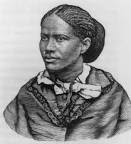1. You are required to engage with the argument(s) of one of the following essays from your edition of Huckleberry Finn. Write how they changed your perspective, or why you disagree with the view, adding or opposing textual evidence (with analysis). You might also want to apply/extend the author's argument to other texts you have studied in the course. I have summarized the essays' arguments in order to help (but this is also a simplification, excluding additional interesting points):
a. Earl F. Brideu, pp. 346-355: on the drawings by Kemble and how they present a "softened" narrative [for the audience] of the verbal text
b. John H. Wallace (p. 375-376) vs. Jocelyn Chadwick-Joshua (376) on wether The Adventures of Huckleberry Finn are a racist text
c. Leslie Fiedler (pp. 385-86): homoerotic undertones in the relation of Jim and Huck [see full article here: http://ereserve.library.utah.edu/Annual/ENGL/7700/Locke/come.pdf]
d. Leo Marx (pp. 386-87) - the flawed ending of the book is related to Mark Twain's difficulty in escaping his "genteel tradition"
e. Ralph Ellison (pp.388-89) - the novel gives food for thought due to its ambiguity, but the "negro's" infantilization causes discomfort
f. Henry Nash Smith (pp. 389-392) how speech forms (vernacular or exalted styles) evidence the conflict between accepted values and protest
g. Toni Morrison (pp. 393-402): silences and terrors in the novel come from the wound of slavery in Southern society
h. Shelley Fisher-Fishkin (pp. 402-405): Twain gave Huck an African-American voice
i. David S. Smith (pp. 405-420): the novel contains a critique of socially construed fictions (e. g. romanticism, religion, etc.)
j. Ishamel Reed (pp. 420-425): how the themes and conundrums of the novel linger in contemporary society
k. Jane Smiley (pp. 424-434): Huck (and Twain) do not care enough about Jim's desire for freedom
l. Tom Quirk (pp. 434-45): How flaws in the novel and failure in its structure contribute to its restless liveliness
m. Thomas Cooley (pp. 445-456): innovation of narrative technique portraying both deep and impressionistic conscience ("the river of conscience" evoking the modernist "stream of consciousness")
n. Andrew Levy (pp. 456-462): relevance of the novel in the current discussion about how we raise our children
2. The work will preferably be done in pairs, although requests to do it individually can be accepted, provided they are justified. It will be 2500 words max. excluding bibliography (or 1800 words max. in the case of individual papers).
3. Plan / Abstract The work plan should not exceed 2 pages and should include
a) title / research question
b) short abstract
c) Topics and subtopics
d) Annotated Bibliography (of other texts you engage with [not too many], explaining shortly why they are useful)
4. Deadlines
Plan / Abstract: by November 27th, sent via the moodle platform
1st draft (with at least 3/4 of the work): by December 18th
Submission of final work: December 30th at 8 p. m., via moodle and at the teacher's locker (in the corridor of the Department of English Studies, 2nd floor)


























